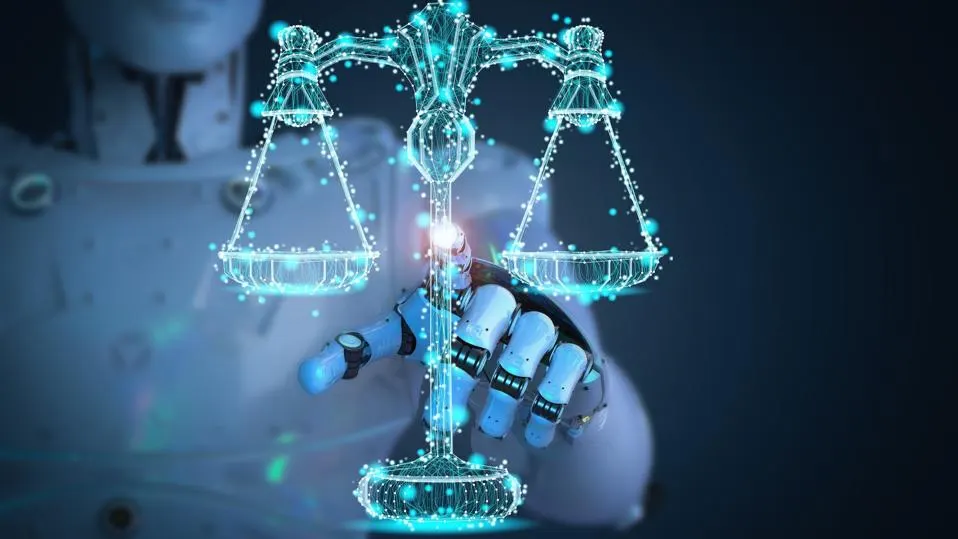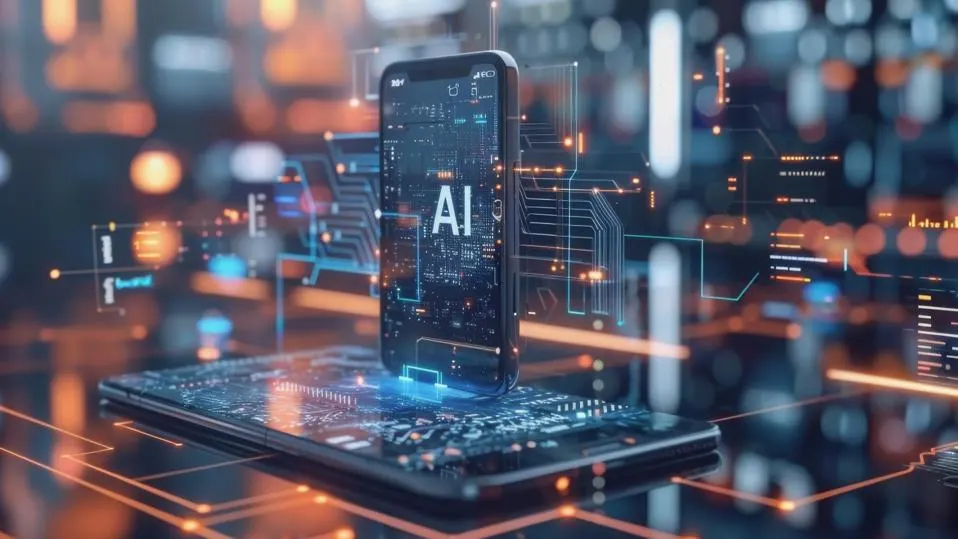How Generative AI Will Change The Jobs Of Lawyers
25 March 2024
Generative AI tools like ChatGPT are changing everything about the way we carry out knowledge-based work. This means that lawyers and other legal professionals stand to benefit by boosting their productivity and reducing the amount of time spent on routine, repetitive tasks.
In fact, one recent survey by LexisNexis found that half of all lawyers think generative AI will significantly transform their business, and 92 percent think it will have at least some impact.
Of course, these professions also face unique challenges around the use of this technology. In the legal world, confidentiality is often paramount, and small errors on the part of AI tools could have serious consequences on people’s lives.

Exploration, Fact-Finding And Research
One of the tasks where generative AI excels is reading huge stacks of documents and working out what they mean. Most lawyers will be only too familiar with this type of work, and probably willing to let a machine do it!
It’s real value, though, lies in what can be done with the time that’s saved. Spending time with clients getting to really understand their problems is a more valuable use of expert human time and something AI won't be able to beat us at for a while.
In this area of legal work, generative AI can be used to find relevant laws and rulings amongst pages of regulations, search through databases of case law and precedents, and review evidence.
It can then very quickly translate what it’s learned into whatever format it will be useful in for whoever is going to use it – whether that’s a junior lawyer, an experienced judge or just a layman who needs to understand how the law affects them.
It can also be used to generate documents, contracts and letters. These are jobs that all need doing but eat into the time of lawyers. Soon, finding a lawyer that doesn’t use generative AI to automate these everyday tasks might be as hard as finding an accountant who doesn’t use a calculator!
Last year I wrote about work being done by the California Innocence Project. Generative AI has reduced time spent by humans drafting letters and summarizing complex documents, freeing up their time to fight miscarriages of justice.
According to the LexisNexis study, lawyers themselves believe that the top use case will be research (65 percent), followed by drafting documents (56 percent), document analysis (44 percent) and writing emails (35 percent).
Risk Assessment and Due Diligence
Another thing that generative AI is great at is predictive analytics. This means it makes it easier for lawyers to make data-driven decisions. It’s often a lawyer’s task to weigh up the chances of a successful litigation against the cost of making a settlement.
While traditional AI has been used for this kind of legal forecasting for a while, adding generative AI to the mix democratizes the technology, making it usable by professionals with little knowledge of data science.
There are ethical and business concerns here, though. Lawyers will need to be transparent with clients about what decisions they’re making with the help of AI. On top of that, this type of predictive analytics requires huge volumes of data, and it’s crucial that the data is accurate and free of bias.
Of course, generative AI can also create risks, as well as predict risks. Lawyers often have access to very sensitive information about their clients, or others involved in cases they’re working on. Putting this sort of information into public AI tools could clearly lead to serious problems.
Luckily, private AI systems, including those that can be deployed securely on-premises or in private clouds, are increasingly common. As with other professions where privacy is of paramount importance, lawyers are likely to be keen adopters of these solutions.
Access to The Law and Justice
Generative AI also has the potential to improve access to law and justice by helping lawyers communicate with clients or anyone needing help. Chatbots can help answer many basic questions that people have when legal issues arise, often without needing personal data. They can easily identify questions that require an expert human response, directing the user to the most suitable professionals.
They can enhance lawyers' ability to communicate information quickly and efficiently to their clients, keeping them updated about the latest developments in their cases. For example, one complex court judgment can quickly be summarized and explained for different groups of people.
However, its critical that oversight is applied at all times, to ensure that responses are appropriate and there are no breaches of confidentiality.
What Tools Are Available?
As well as the likes of ChatGPT, Microsoft Co-Pilot and Bard – all capable of many of the routine tasks we’ve discussed here, a swathe of specialist tools are already available. A few examples include:
Harvey, a law-focussed AI chatbot.
ExParte - a platform that uses natural language processing on top of machine learning to predict the outcome of litigation.
Casetext - an AI legal assistant that uses generative AI to review and prepare documents and conduct legal research.
Deepjudge - an AI-powered legal search engine.
The Changing Role Of Lawyers
For researching, writing, legislating, interpreting and arguing law, people will always be an essential part of the process. That doesn't mean generative AI won’t change the role, though, just as previous waves of breakthrough technologies such as the printing press, computers and the internet have radically changed it in the past.
Lawyers who manage this transition well should find that their roles become more people-focused. Their priority will be understanding clients and their legal issues in a human-to-human way. This helps to build professional relationships and trust in ways that machines may never be able to replace.
With less time spent on routine and essentially repetitive tasks, there will also be more time for educating and upskilling. Lawyers have always had to keep their knowledge up-to-date, but this could mean honing technology skills in order to best take advantage of the tools becoming available. Others might choose to hone the “soft” human skills like communication and creativity instead.
Pretty much everyone, though – and this goes for professionals in general, not just lawyers – will be expected become familiar with regulatory and compliance issues around the use of data and AI. Specifically, they will need to understand all of the regulatory requirements around the use of personal data in their field of work, as well as the importance of being open and transparent about how data and AI is used.
One thing that is certain is that the successful lawyers and legal professionals of the next decade will not be those who choose to bury their heads in the sand as this wave of transformative technology sweeps over them.
Those that are able to strike a balance between harnessing the potential for driving efficiency and growth, and navigating the (many) challenges, will be on their way to future-proofing their careers.
Related Articles
4 Smartphones Leading The AI Revolution
As enterprises increasingly rely on company-issued smartphones as primary computing devices, these mobile devices are becoming the frontline of workplace AI integration.[...]
The Rise Of AI-Enabled Virtual Pets: Why Millions Are Raising Digital Companions
Remember Tamagotchis? Those tiny digital pets that had millions of kids frantically pressing buttons to keep their virtual companions alive in the 1990s?[...]
The Dark Side Of AI: How Deepfakes And Disinformation Are Becoming A Billion-Dollar Business Risk
Every week, I talk to business leaders who believe they're prepared for AI disruption. But when I ask them about their defense strategy against AI-generated deepfakes and disinformation, I'm usually met with blank stares.[...]
Why You Should Be Polite To ChatGPT And Other AIs
In my latest conversation with ChatGPT, I caught myself saying "please" and "thank you." My wife, overhearing this, couldn't help but laugh at my politeness toward a machine.[...]
The 7 Revolutionary Cloud Computing Trends That Will Define Business Success In 2025
Picture this: A world where quantum computing is as accessible as checking your email, where AI automatically optimizes your entire cloud infrastructure, and where edge computing seamlessly melds with cloud services to deliver lightning-fast responses.[...]
AI And The Global Economy: A Double-Edged Sword That Could Trigger Market Meltdowns
The stock market's current AI euphoria, driven by companies like NVIDIA developing powerful processors for machine learning, might mask a more troubling reality.[...]
Sign up to Stay in Touch!
Bernard Marr is a world-renowned futurist, influencer and thought leader in the fields of business and technology, with a passion for using technology for the good of humanity.
He is a best-selling author of over 20 books, writes a regular column for Forbes and advises and coaches many of the world’s best-known organisations.
He has a combined following of 4 million people across his social media channels and newsletters and was ranked by LinkedIn as one of the top 5 business influencers in the world.
Bernard’s latest book is ‘Generative AI in Practice’.










Social Media